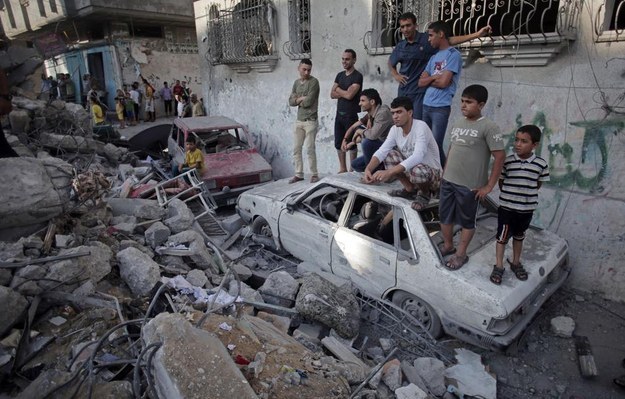On August 1, 2014, Elie Wiesel, a writer, Holocaust survivor and outspoken supporter of Zionist policy, took out an ad in the New York Times and several other newspapers defending Israel’s attack on Gaza. In response, a subsequent ad appeared in the New York Times—signed by over 300 Holocaust survivors and their descendants—criticizing Weisel’s statement.
A number of Facebook comments appeared on-line, responding to this second ad, including the following: “Those aren’t Holocaust survivors those are probably collaborators with the Nazis;” “Enough, they should die already…;” “No wonder Hitler murdered 6 million Jews because of people like you you’re not even Jews you’re disgusting people a disgrace to humanity and so are your offspring you are trash;” “It’s a shame Hitler didn’t finish the job;” “Holocaust survivors who think like this are invited to go die in the gas chambers.” (The full story can be found at
http://972mag.com/nstt_feeditem/israelis-on-facebook-wish-death-for-holocaust-survivors-against-protective-edge/)
One of the signatories to the New York Times statement that criticized Wiesel was Adam Policzer, a retired Vancouver architect. When Nazi Germany invaded Hungary in March 1944, his mother placed him in the care of Christian neighbours who managed to literally get him out of Auschwitz-bound trains (twice).
In the late 1930s Policzer’s family planned to seek refuge in Chile. His father travelled first to prepare for the arrival of his wife and newborn son, arriving there in August 1939, days before WWII began. Policzer and his mother were stuck in Hungary, unable to leave the country. He was not reunited with his father until 1946.
In 1975 Policzer, his wife Irene and his three children came to Canada from Chile.
He had this to say about the comments attacking their ad:
Reading the Facebook reactions to the public letter I and over three hundred other Holocaust survivors and descendants signed in response to Elie Wiesel’s ad was painful. Painful because it brought back memories. Painful memories.
I was five years old in the spring of 1944 when my mother, before being deported to Auschwitz, entrusted me to a Gentile neighbour. Neither she nor anybody else from my family ever returned.
A few weeks later, patriotic Hungarian neighbours went to the authorities to complain that my guardians were hiding a Jewish child. I was detained and subsequently put on a cattle wagon with several hundred other Miskolc Jews who had been overlooked in the first deportation. We were taken to the Budapest ghetto to wait our turn to be transported to Auschwitz. Miraculously the Gentile neighbors managed to get me out.
I will always remember the sad column of Miskolc Jews being dragged through the two or three kilometres that separate the Budapest East Rail Station from the Ghetto. There were bystanders on the streets, their faces full of hate: “They are getting what they deserve;” “Good riddance;” “The fewer of them the better.” We Jews were clearly seen as the “other” who had no right to share their Hungarian State. We had to be taken away, disposed of, so they could enjoy their “Hungarianness” free of unwelcome others. Free of us. Free of Jews. That it meant death for us was not their concern.
How can I not feel pain when I read Elie Wiesel’s ad and cannot find in it even a single word asking the IDF to stop the killing of our “others”? How can it not be painful when I read the Facebook postings attacking our ad, full of the same hate I saw around me seventy years ago, now expressed not by anti-Semites but instead by Jews?
If the death of my mother, my family, and the many millions of Holocaust victims taught me anything, it is that nothing justifies classifying any person or group as “other,” different from me, whose fate is not important to me. The moment someone feels that the suffering of their “tribe” is important while the suffering of the “other tribe” is not, they risk becoming one of the executioners, full of hatred.
My mother, my family, were killed by people who hated. I owe my life to people who cared. Those are the memories I want to honour.



